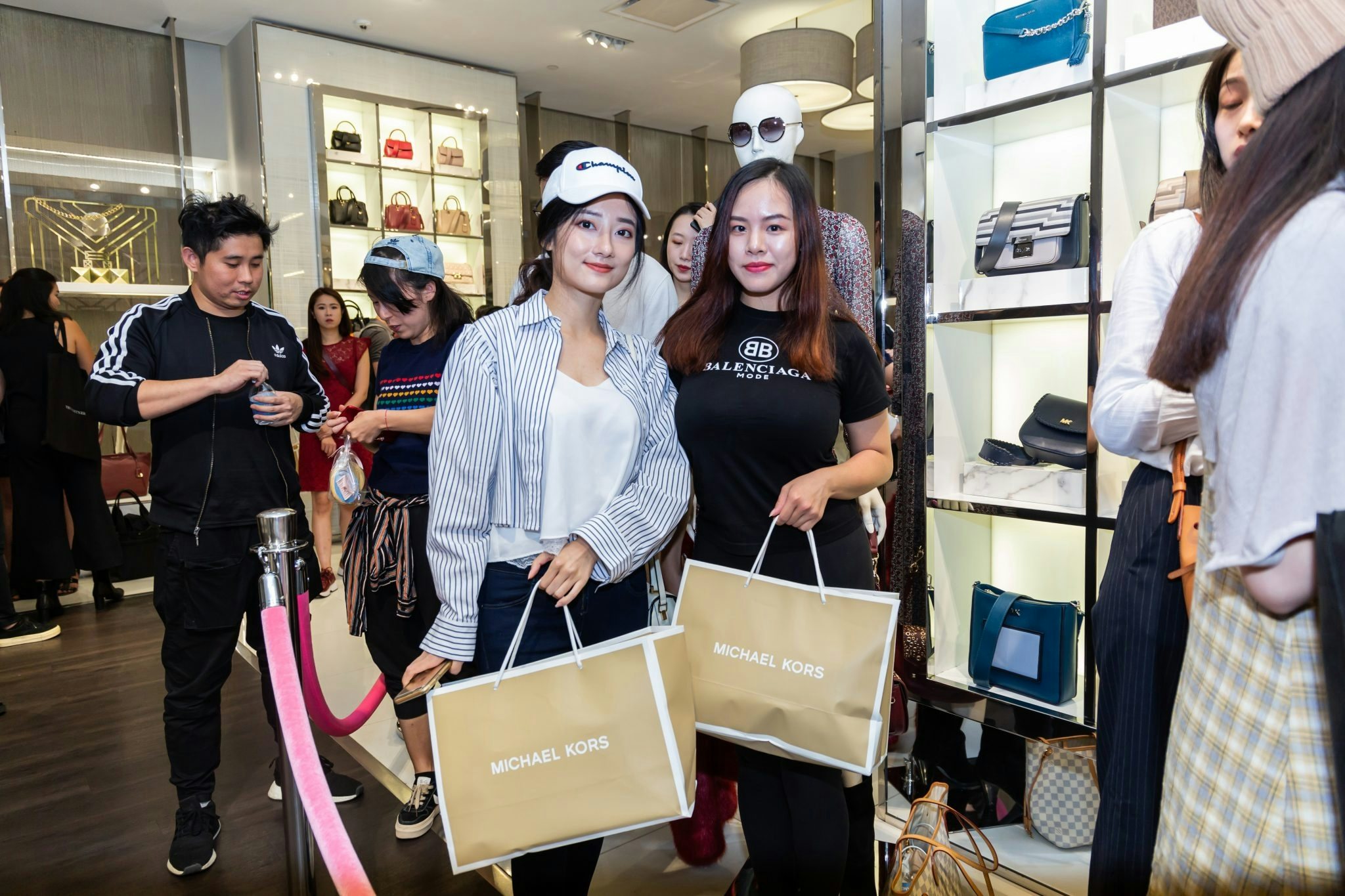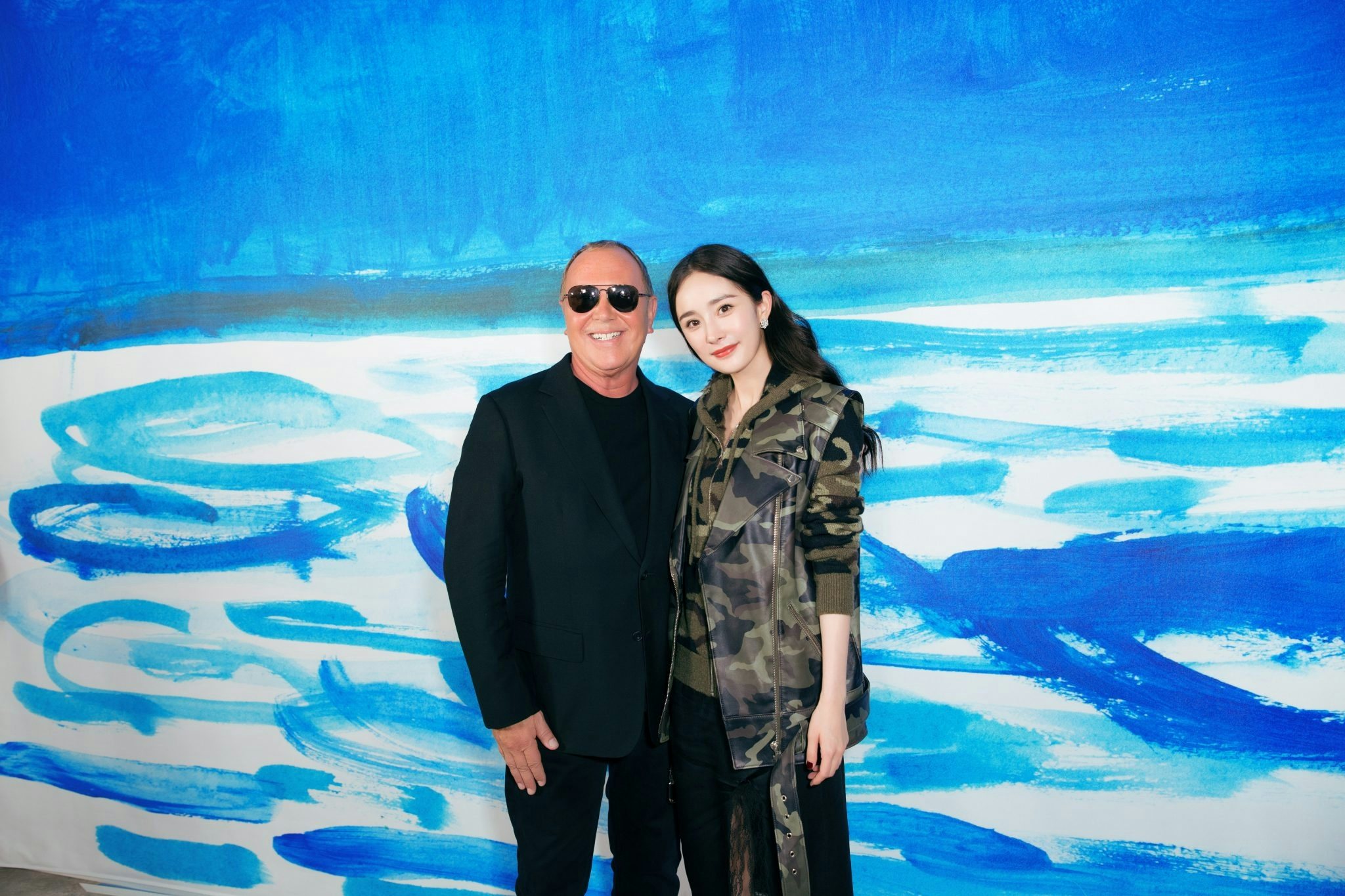For fashion houses and luxury brands, one big-spending demographic has often fallen between the cracks: the Chinese consumers residing outside of China. But brands have started to realize they can no longer afford to ignore this group given that their dependence on Chinese consumers for growth has reached unprecedented levels.
New York Fashion Week saw American luxury label Michael Kors take its marketing and customer engagement efforts with overseas Chinese shoppers to a whole new level, with visible success.
Taking full advantage of the visit of Kors “global ambassador” Chinese actress Yang Mi to the Spring/Summer 2019 runway show, Michael Kors organized a 90-minute fan meet-up event at its flagship store at Rockefeller Center in New York on September 11. The event attracted more than 700 visitors, with a lot of them purchasing products in exchange for a chance to interact with Yang.

The event built upon the brand’s earlier Qixi, aka Chinese Valentine’s Day, collaboration with Yang, in which the actress re-designed the Whitney handbag in black and red for consumers in China. And This New York Fashion Week party was open to the public, but fans who purchased the Whitney bag before had the priority to meet Yang earlier. That led many consumers to wait in line and run out to shop for the bags before Yang's arrival.
Michael Kors promoted the event on a variety of social media channels that overseas Chinese residents usually use, including Facebook, Weibo, and WeChat, in the days leading up to Yang's appearance. On WeChat, in particular, it placed a so-called Moments ad, which enables location-based advertising, to target Chinese readers who are currently in the city. Additionally, Michael Kors worked directly with several Chinese student groups and university associations in New York to promote the event. These Chinese students organically spread the word on WeChat by sharing the event flyer in chat groups.
This time, Yang introduced the Whitney design in pink to her fans, and only 150 bags were exclusively available for sale in that store. Her appeal helped attract hundreds of younger visitors to the event. Besides fans, there were several micro-influencers who showed up to elevate the impact of the event on social media.
“I was invited by Michael Kors Collection’s store manager because I am a VIP client,” said Lin Li, a New York-based Chinese internet personality who live-streamed the event to her fans in China. “I am not a fan of Yang Mi, but I have bought a lot of Michael Kors products. So I have some following for my live-streaming channel of people who also have the same fashion tastes.” Lin believed her live-streaming session would at least boost interest among followers to purchase the Whitney collection in China.
The relevance of the Chinese market to Michael Kors' business has increased significantly in recent years. The brand bought back control of merchandising rights to directly operate over 100 stores from local Chinese licensees in 2016. Meanwhile, plenty of Michael Kors products are still manufactured in the country. In the last quarter, the brand reported a double-digit rise in revenues from the year before in its Chinese market, beating the growth rates of other regions.
However, the intensification of the U.S.-China trade war is likely to expose the brand to greater uncertainties and risks, if China decides to retaliate against the Trump administration's tariffs. Taking a global perspective when marketing to China, as illustrated by this overseas event, thereby allows brands like Michael Kors to continue cashing in on Chinese luxury shoppers without actually selling products in China.


